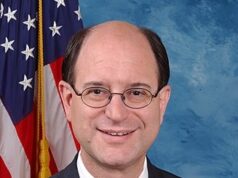Allows tracking of real-time energy efficiency to help reduce costs and carbon emissions
WASHINGTON, D.C. – July 9, 2013 – (RealEstateRama) — Today Mayor Mike McGinn announced the High-Performance Buildings Pilot Project, a new smart buildings partnership between the City of Seattle, Microsoft and the Seattle 2030 District aimed at reducing power consumption through real-time data analysis of Seattle buildings. This pilot program will use information technology to analyze the performance of buildings in real-time, allowing building owners to drive energy efficiency into existing buildings, without costly retrofits and without disrupting tenants.
“This program will help businesses save money and help us reduce carbon emissions,” said Mayor Mike McGinn. “By developing this technology here, we can help make Seattle a global leader in clean energy innovation. That’s something we can export around the world.”
The High-Performance Building pilot program will create building information systems which capture and centralize the real-time data from the equipment that runs the heating, cooling, and lighting in buildings. These systems will analyze the data to identify and report items that could lead to inefficient equipment performance and energy waste, providing building managers with opportunities to use energy more efficiently. With this information, data can be used to adjust elements in each room of a building such as lighting, temperature, and the position of window shades to maximize energy efficiency.
“Throughout the world, Microsoft partners with cities to help address many of their most complex challenges, including the better delivery of energy efficiency,” said Rob Bernard, chief environmental strategist at Microsoft. “Seattle is the ideal partner for demonstrating how analyzing massive amounts of data can make buildings more efficient, and ultimately help cities around the world reduce their carbon footprints and address climate change.”
The City of Seattle and Microsoft partnered with the Seattle 2030 District, a public-private collaborative of downtown Seattle property owners and managers that has established a 50% energy use reduction goal by 2030. The Seattle 2030 District will work with pilot buildings to deploy Microsoft’s cloud data platform and the Accenture Smart Building Solutions to identify and implement energy savings opportunities.
“Seattle building owners are innovative and deeply committed to exploring new ways to run their buildings a lot more efficiently,” says Brian Geller, executive director, Seattle 2030 District. “The pilot’s goal to help owners and operators monitor their buildings every minute, 24 hours a day, and make adjustments to equipment in real time is compelling.”
One of the most appealing aspects of the pilot is the predictability that smart building systems provide. The project not only tells building managers how to optimize each piece of equipment for maximum energy reduction, but it also apprises them of the health of their equipment. “If you’re hosting a major meeting and learn two days in advance that a key piece of HVAC equipment is about to fail, you’ll have time to repair or replace it before the meeting,” says Rodney Schauf, director of engineering, Sheraton Hotel Seattle. “The predictive power of this tool can maintain comfort and reliability, which are just as important as the energy savings for many building owners.”
This pilot is funded in part by an “i6 Green Challenge” grant from the U.S. Department of Energy and U.S. Economic Development Administration to test next-generation energy efficiency technologies. Another grantee, Innovate Washington, is leading a statewide effort to build the Northwest Building Energy Technology Hub to help prove investments in energy efficiency save money. The other grant partners are South Seattle Community College, the Cleantech Open, and Puget Sound Regional Council.
“This High-Performance Buildings Pilot project is another tool to help Seattle City Light customers make informed decisions about their energy use,” said Jorge Carrasco, City Light general manager and CEO. “Maximizing a building’s energy efficiency lowers costs for our customers and is part of our continuing commitment to conservation and environmental leadership.”
The City of Seattle will observe project implementation, performance results, and measurement and verification methods. The pilot participants, which include the University of Washington’s School of Medicine, The Boeing Company, the Sheraton Hotel Seattle, and the City of Seattle’s Municipal Tower, will share performance results and drive public awareness of the potential for information technologies to help achieve energy efficiency and carbon neutrality.
###
City’s Office of Economic Development (OED)
OED supports a healthy business environment and empowers companies to grow and compete. We provide services directly to businesses through advocacy, retention and expansion assistance, and workforce development. OED has several financing options for businesses, including options for small to medium to large businesses. Visit www.growseattle.com to access city services for businesses, and for more information about our office, visit www.seattle.gov/economicdevelopment
Microsoft
Microsoft’s cloud platform and services, hosting, and management environment will provide unlimited storage capacity for collecting real-time data for an unlimited number of buildings and HVAC devices. Microsoft SQL Server 2012 database software processes the terabytes of data for real-time analysis. Microsoft SharePoint Server 2013 provides a user-friendly portal where building managers can monitor building energy efficiency, run reports, and drill down for more details on faults and alerts. www.microsoft.com/citynext
Seattle 2030 District
The Seattle 2030 District is a public-private collaborative seeking to develop strategies to assist property owners in downtown Seattle with reducing energy use. They have established a 50% reduction goal for energy, water and transportation emissions in existing infrastructure, to be achieved by 2030. The primary role of the Seattle 2030 District is to bring together the public and private stakeholders and create new tools and partnerships to be leveraged for mutual benefit. Success in this pilot program will allow the 2030 District to use Seattle as a model for similar programs across the country. http://www.2030district.org/seattle/
Seattle City Light
Seattle City Light is the 10th-largest public electric utility in the United States. It has some of the lowest cost customer rates of any urban utility, providing reliable, renewable and environmentally responsible power to nearly 1 million Seattle-area residents. City Light has been greenhouse gas neutral since 2005, the first electric utility in the nation to achieve that distinction. More information at: http://www.seattle.gov/light/
All Mayor’s Office press conferences, town halls and general public meetings are archived by Seattle Channel. Many town halls and press conferences are also broadcast live to the web. Sign up for The Reader, our office newsletter, at our website. And learn more about your neighbors and the mayor’s activities on our blog.
Contact:
Robert Cruickshank (206) 849-9584
Karin Zaugg Black (206)733-9810
















